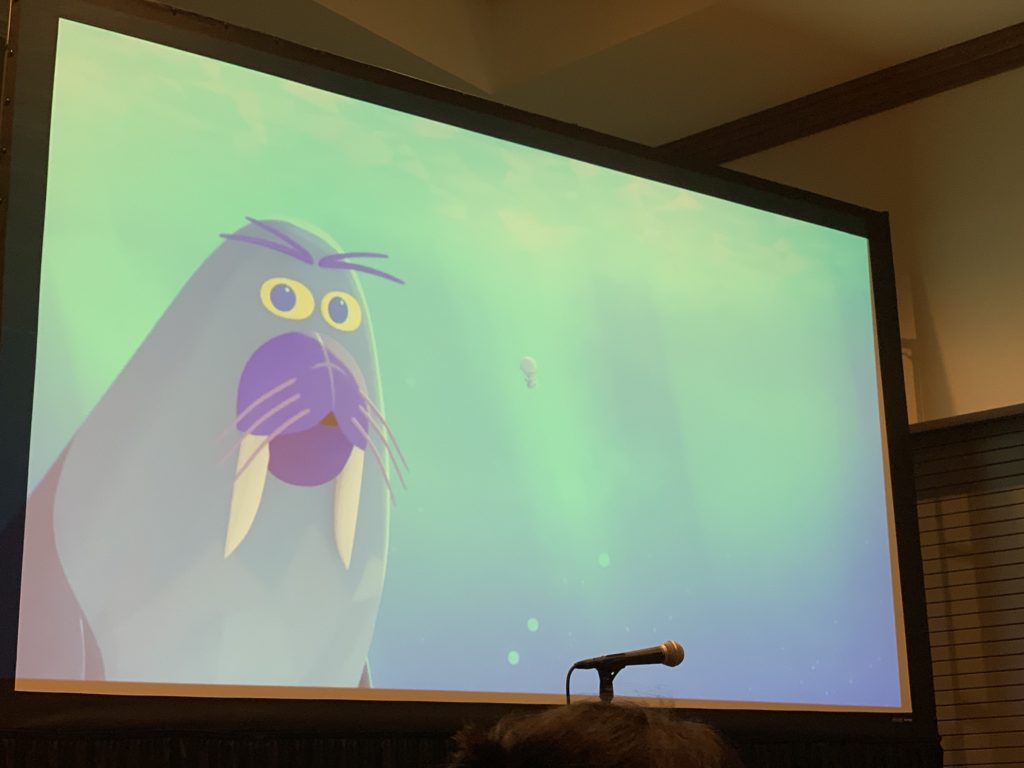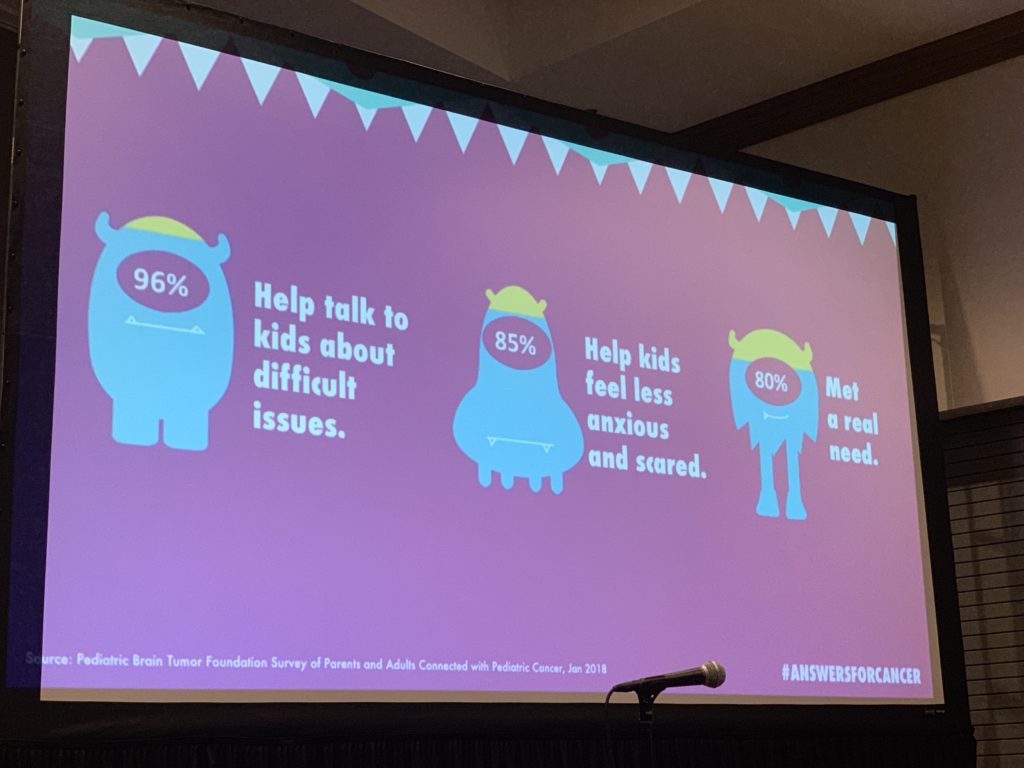
Cancer diagnoses are often followed by feelings of uncertainty, confusion and fear — especially for children.
A child is diagnosed with cancer every three minutes, and kids face a lot of procedures, physical changes and emotional struggles as a result. Medical terminology is confusing enough to adults, so for children, battling cancer can be a daunting and scary period. The stress and anxiety from not knowing what’s happening in one’s own body and how it’s being treated complicates this issue even more.
The Pediatric Brain Tumor Foundation (PBTF), along with several animation and development companies, partnered together to tackle the challenge of making cancer less scary for kids, and their efforts were presented at the panel Cancer is Scary: How Animation and AR Can Help.
The teams created a group of animated characters known as the Imaginary Friend Society, who tackle tough topics from starting chemotherapy to getting shots. The project primarily uses animated videos to explain the process of battling cancer, both from a terminology and procedure standpoint but also for emotions and confusion. One video even addresses feelings of sadness that often come after a diagnosis.
Panelist Jason Sperling, who is also a senior vice president and chief of creative development at RPA, said the teams who worked on this project had quite a limited budget: $0.
Initial estimates placed the expected amount of work between animators, developers, writers and producers around $1 million, though the project has reached an estimated cost equivalent to $22 million in work done.
The Imaginary Friend Society moved beyond standard animated videos with an AR app that places characters in a users environment — often a doctor’s office or a procedure room to help ease a child’s tension ahead of treatment. The project will soon move forward in this space with a new app called Imaginary Calls, where two users can video chat with each other, though one (most likely a doctor, caretaker, nurse or other adult) will be portrayed as one of the Imaginary Friend Society characters. This is said to ease tension for the child with personal conversation, but also helps reduce the anxiety a parent has when trying to talk to their child about their illness.
Despite the large amount of pro-bono work done, the project was heavily based in research done by the PBTF which showed exposure to content from the Imaginary Friend Society reduced fear and anxiety in kids who had been diagnosed with cancer. Studies showed less fear and anxiety during treatment often lead to better patient outcomes.


Comments are closed, but trackbacks and pingbacks are open.